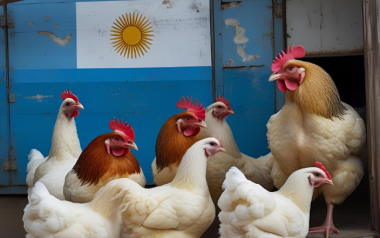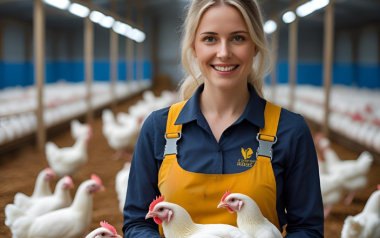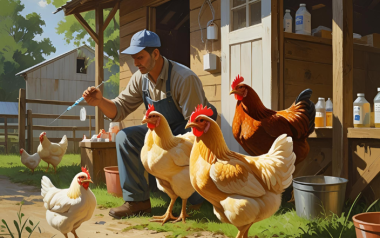11 Jun 2020
Pakistan fights locust swarms by turning them into poultry feed
Recently, Pakistan has found itself under fire from endless swarms of locusts; however, the government has sanctioned a novel and […]
Recently, Pakistan has found itself under fire from endless swarms of locusts; however, the government has sanctioned a novel and potentially beneficial plan of resolving this pest problem that threatens the country’s food supply.
Prime Minister Imran Khan is behind the endorsement of this pilot project, that initiated in the breadbasket province of Punjab, where villagers earned cash by gathering locusts that were then dried out and shredded, in order to be used as a protein supplement in poultry feed.
The main driving force behind this project was to alleviate the financial struggles of farmers, that are now witnessing the worst locust invasion of the last 25 years. These swarms are almost always followed by the wiping out of entire crops and harvests in Pakistan’s agricultural heartlands, leaving farmers scrambling for income.
Muhammad Khurshid from Pakistan’s food ministry and biotechnologist Johar Ali set up the programme, that was inspired to a certain extent by war-ravaged Yemen, where authorities have encouraged people to eat the locusts due to their rich protein content, amidst the ever-growing famine in the state.
The location of choice for the project was Okara district within the province of Punjab, where farmers had not used any pesticides that would make locusts unsuitable for consumption.
“We first had to learn, and then teach the locals how to catch the locusts. Nets are useless against them,” Khurshid told the AFP news agency.
Locusts have the tendency to be very immobile during night time, as they cluster on trees and plants, making them easy to scoop up. Therefore, the local workers were encouraged to work during the night, for a compensation of 20 rupees (12 cents) per kilogramme of locusts caught.
One farmer who lost all her crops due to the swarms said she and her son earned 1,600 rupees ($10) during a single night of locust gathering, helping to offset the financial damage.
Through word of mouth, this project eventually motivated hundreds of people to join in – turning up with their own bags to stuff full.
With 20 tonnes of captured locusts, authorities ran out of money to pay the collectors and the programme was temporarily paused. The ministry did declare that the project will expand to other territories after it posted the collection results last February.
The harvested locusts went to Hi-Tech Feeds – Pakistan’s largest animal-feed producer – which substituted 10 percent of the soybean in its chicken feed with the locusts.
“There was no issue with the feed, the locusts have a good potential for use in poultry feed,” general manager Muhammad Athar said, after trying the modified product on 500 broiler hens.
Nationwide emergency
While the project is not a steadfast solution to the damages inflicted on crops, it can provide hard-hit farmers with an alternative revenue stream and alleviate pressure on authorities that distribute locust-beating pesticides.
The swarms have gnawed their way through crops from East Africa, all the way to parts of India this year, and experts fear it will worsen during monsoon rains arriving this month.
The crisis is so severe that the government has declared a nationwide emergency and appealed for help from the international community.
According to the UN’s Food and Agriculture Organization, Pakistan could suffer about $5bn in losses if 25 percent of its crops are damaged, and can also lead to food insecurity within a country, where 20% of the population is already undernourished.
Source: https://www.aljazeera.com/news/2020/06/pakistan-turns-locusts-chicken-feed-tackle-invasion-200610105115257.html





































